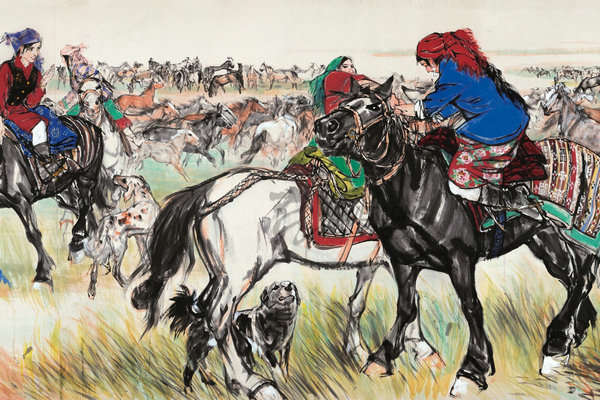 |
|
The Powerlong Museum to be opened on Nov 18 in Shanghai shows artworks collected by Xu Jiankang including Huang Zhou's ink painting Grassland and Qi Baishi's album of paintings Landscapes. [Photo provided to China Daily]
|
A report on global private art museums in 2015 jointly compiled by Larry's List, a Hong Kong company that monitors the art market, and Art Market Monitor of Atron, said Beijing, Shanghai and Guangzhou are home to more than 70 percent of China's private museums.
The museums reflect their founders' preferences in collecting art, the report said, they focus on modern and contemporary Chinese art, and oil paintings account for 85 percent of their collections.
Public exposure of works held in a collection is among the top concerns of these museums, so they put on as many exhibitions as possible. China's private museums each put on more than 10 shows a year, so about once a month on average, which is much more than that of many private museums elsewhere, the report said.
Besides rotating the works of their owners that are put on display, these museums have also served as a launchpad for emerging Chinese artists and a platform for international artists.
The second exhibition of an art project called Shanghai Galaxy is now on at the Yuz Museum in Shanghai, featuring works through which the metropolis' development in art is explored, something that the museum's managers hope will enhance its ties with local residents.


























 Raymond Zhou:
Raymond Zhou: Pauline D Loh:
Pauline D Loh: Hot Pot
Hot Pot Eco China
Eco China China Dream
China Dream China Face
China Face






